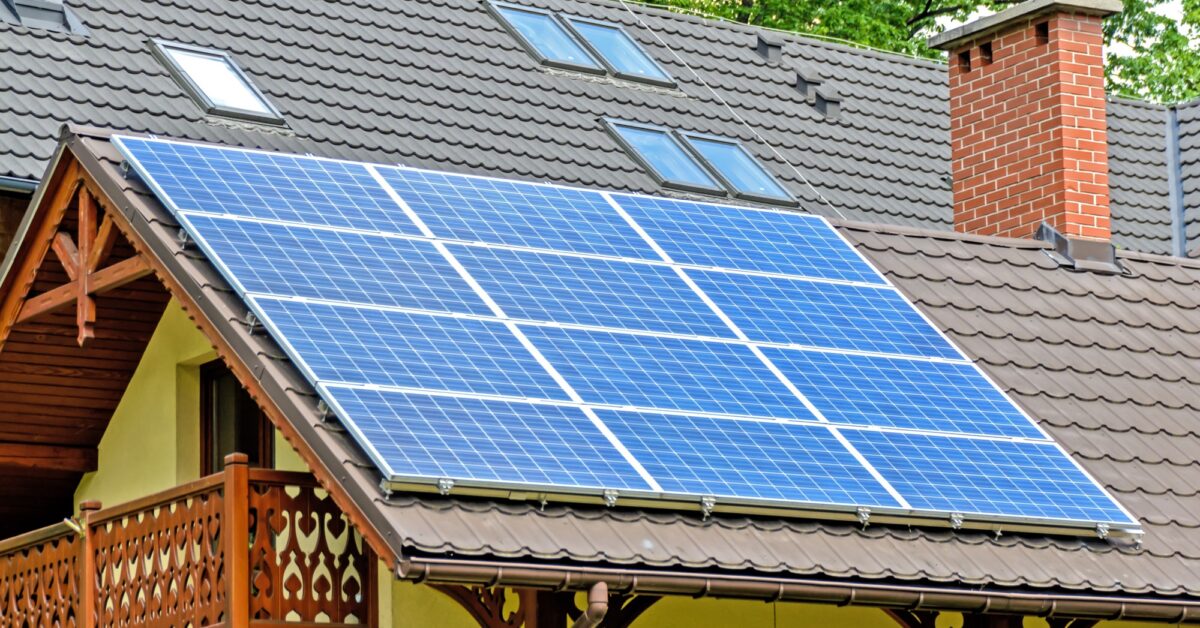Solar panels are an efficient way to help your home stay green and energy efficient. But, they come with their advantages and disadvantages. Learn what these are and how you can take advantage of them.
Cost
If you are interested in installing solar panels for your home, you might wonder what are the benefits of solar panels in homes and how much they will cost. The amount you spend can vary, but overall, it will be a good investment. Solar panels can reduce your energy bill and even help you avoid the cost of rising electricity rates. Before buying a solar system, you must decide on the size and type. There are two main types of PV systems: grid-tie and off-grid. A grid-tie system uses the power produced by your panels to feed into the utility system, while an off-grid system produces electricity and stores it in batteries. You should also consider your local utility rates. Some utilities offer incentives for homeowners to install solar. This can make the cost of a residential PV system cheaper. Similarly, you may qualify for a federal tax credit for your panel installation.
To calculate your savings, you will need to find out how many kilowatts of electricity you will produce each year. The size of your house and roof are also factors in this calculation. Several solar calculators can give you an estimate. Once you have decided on your solar system, you need to hire a professional to install it. It can take several weeks to six months for the process to be completed. However, the time will depend on how quickly the company you hire can complete the work.
Space Requirements
There are many factors to consider when installing solar panels for homes. These include the home’s size, the available roof space, and the amount of sunlight the area receives. This will determine the type of solar panel you install and the number of panels you need. The largest factor to consider is the size of the home. Larger homes will allow you to install more panels. Also, your energy usage will determine how much solar power you need to cover your needs. You should also consider the amount of direct sunlight that your area receives. If you live in a sunny climate, you will need more solar panels than someone in a cooler climate. The average home has around 3,000 square feet of roof space. While this is enough to support a few solar panels, a larger home can provide enough room for more panels. Solar power is a clean, renewable source of energy. However, you must have sufficient space to install the panels you need to harness it. That means considering your family’s energy needs and your local incentives. Lastly, you must consider your local electric company’s net metering program. Those programs reward customers for generating their electricity rather than buying it from the utility company. Regarding solar panel technology, the most important feature to remember is efficiency. A smaller and more efficient solar panel will be more effective in the long run. On the other hand, a more powerful solar system will need more space to generate the same amount of power.
Maintenance
If you have solar panels installed in your home, it’s important to keep them in good working order. Although they don’t require much maintenance, it’s important to check them periodically to ensure they are producing energy.
Most solar panels require cleaning every two to four years. You can also have your panel professionally cleaned. A clean panel can help prevent debris from blocking the sun’s rays.
Some solar panel warranties offer a guarantee on the performance of your panels. Most of these warranties last between 10 and 20 years. However, some warranties last up to 25 years. The warranty usually covers repairs or replacement of the system if the panel is damaged. Other factors affect the performance of your solar panels. These include dust, pollen, and other small particles. In addition, your panels can be negatively affected by severe weather, hail, and tornadoes. You can keep track of the performance of your solar panels with the help of a monitoring system. These systems are used to record and calculate your solar panel’s production. They also notify you when your system is malfunctioning. Regular inspections of your panels can detect problems early. This can save you from spending thousands of dollars on repairs and replacements. Your solar system can also be monitored online. While solar panels are designed to last long, they still need to be maintained. Performing periodic checks on your solar panels can help you get the most out of your investment. A regular maintenance plan is a great way to avoid wasting money on costly repairs. Having your panels checked by a professional is also a great way to save on the cost of cleaning.

